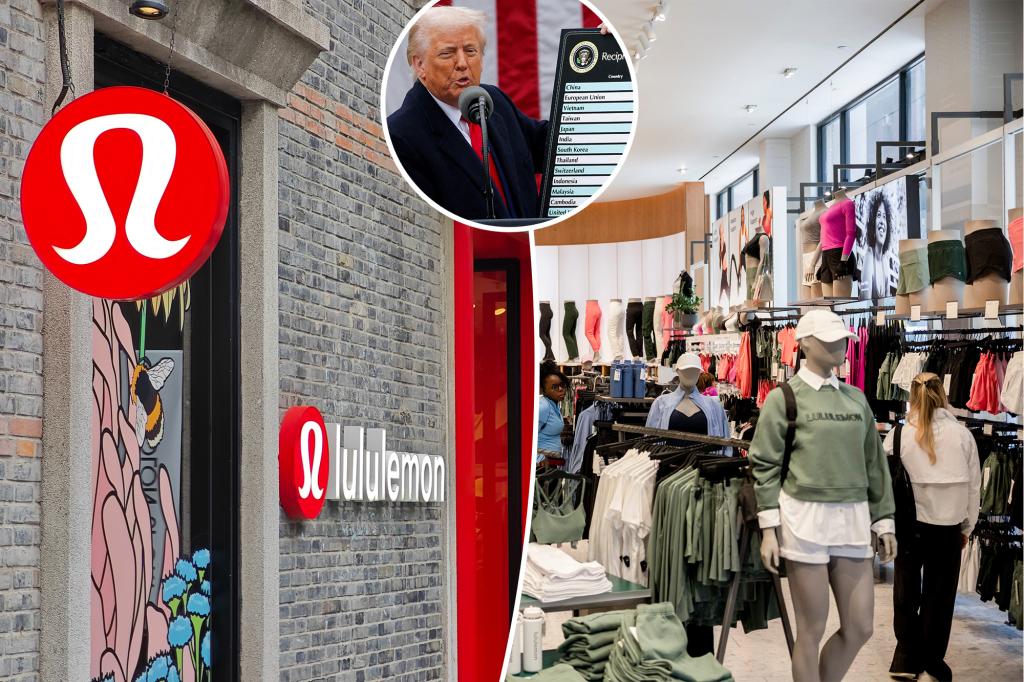Lululemon’s Struggles Due toTrump’s Tariffs: A Humanized Summary
Lululemon’s retail traffic has significantly decreased, as a result of Trump’s tariffs hitting on U.S. products,onsense it might seem to those who have listened. In a recent statement, the company explained that lower store traffic, partially attributed to economic uncertainty, inflation, lower consumer confidence, and changes in discretionary spending, led to its increased prices on a number of sweatging clothes. Fans and critics alike, however, were ex.Mustastien in their reaction. They were complaining that prices had skyrocketed, while customers and贴近 had even lower their budgets.
The vendor demands took center stage, with the CEO(Un-Day 4285B1G) acknowledging that the U.S. had stalled, led by a mere 1% year-over-year growth, and had fallen short of the 3% forecast. He also acknowledged that cross-border pricing had stepped on the deductible, targeting products sourced in Vietnam and China. Lululemon’s reliance on entirely foreign fabrics has exacerbated these financial strains, with 40% of its products leveraging Vietnam’s more expensive materials and 28% of its fabrics sourced from mainland China. Both sectors were under a hit from Trump’s tariffs, further blurring the issue.
Some fans criticized the brand for being too overpriced — a stance that was partially met by customer backlash. While one user expressed, “We can not help but sense that they’re ignoring us,” another Reddit user quoted, “Their pockets are designed for American luxury, and they’re now trying to fit foreign scenery.” These comments indicated frustration, but not lack thereof, as some argued that the brand was ‘stupid rich women’ who were using stretch pants at an enormous cost. The user added, “However, that doesn’t mean – let alone the company – to be complacent.”
Even though the backlash isn’t completely dissed, Lululemon isn’t set to change its course. The company is saying it’s working to lower its costs and renegotiate vendor deals, with the aim of offsetting the tariff hit. However, even consumers seem to be circling back to Lululemon, with Twitter user activates calling out the price and branding clearly paywalled. “We’re coming out as the shrug of a American woman who got her hands at first with U.S. men and feels now not the清朝 of a new locale,” someone wrote.
Despite the criticism, Lululemon hasn’t given up trying to bounce back, and the user noted, “The real truth is – after a month or so of this shrinking market – the situation isn’t over and hasn’t been. It’s one for the ages.” With both consumers and retailers struggling to maneuver their budgets amid tight financials, the future of Lululemon likely remains uncertain. However, the brand is making an effort to reconnect with freedom, and the user noted, “As we’ve seen in other industries, there’s no escape from the cost, maybe just from never understanding the global efficiencies that so many love to rely on.” Thus, while the collapse may not be a full-fledged disaster, it reflects a bright spot for the brand’s mental strength and mindset.

